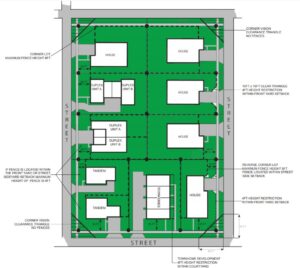Buyers Guides: Fence Permits and Municipalities
Most municipalities within the State of Florida and the Central Florida Area require a permit to erect a fence on a residentially zoned property. It does not matter if the home is located in the County or a City Municipality. A fence permit is needed. There are only two exceptions within the Central Florida Market Place that do not require a fence permit: A Home located within the City Limits of Orlando, and within Lake County Florida not associated with a city municipality.
If you are still asking yourself, do I need a fence permit? The answer is Yes. Yes! Yes!!. Yes. That fence must be approved by the powers to be… So, don’t let anyone, a fence company, or a custom fence company convince you otherwise.
If a fence company says you don’t need a permit, run fast and ever look back. Chances are that fence company’s or that individual’s unwillingness to pull a fence permit are results of lack of licensing and insured with the municipality. Maybe they are simply up to no good. The project requested will most likely not meet local zoning codes, or they are there to scam you out of your money. The bottom line is, if it doesn't start well, it won't end well.
If you are still thinking you don’t need a fence permit, think twice. Build a fence without a permit and more likely than not, citations and fines are sure to follow until you obtain one. In some cases, that unpermitted fence can in up in front of an Ordnance Board, which may result in daily fines upwards of $185 a day.
Before you submit that fence permit application, there are three big things you need to know before you submit that fence permit. They are as follows:
1. So What happens when a Fence permit application is submitted?
We wish we could say it was as simple as one, two, three, but we cannot. When a permit is submitted, depending on the municipality and location of the home, a fence permit can be scrutinized by multiple departments and require multiple tasks. Below is a list of a few departments the average fence permit must be approved by before installation:
- Historic District
- Special District
- Planned Develop Agreement Boards
- Urban Design
- Department of Transportation
- Drainage, Sewer, and Water Management
- Utility Commission
- Zoning.
2. Know your Property:
The key to knowing where, how high, and what type of fence can be installed on your property is to understand how your lot fits into a typical residential block. Each type of lot possesses a unique name such as:
- Traditional Corner Lot
- Reverse Corner Lot
- Traditional Lot
- Flag LotFrom there, determine the dwelling unit type. There are four basic dwelling units such as single-family, duplex, tandem and townhome development.
Below is a diagram provided courteously provided by the City of Orlando. Each municipality terminology will vary but the concept is still the same.
3. Know Your Municipalities’ Fence Code:
We are not talking about how a fence is built or how it should be constructed, because the State of Florida has no Building Code for fences. Nothing that states how deep a post should be buried or what type should be used. There are some codes for fences in High-Velocity Hurricane Zone which can be found in the 2010 Florida Residential Code, SECTION R4409. Understand, the approval of your fence permit is not based on how it is built. Instead, it is based on where the proposed fence is going to be installed on the lot.
Fence permitting is mainly a Zoning Issue. It about the height and sometimes about the opaqueness and style of the fence. Sometimes, placing a fence in a particular location requires additional setbacks or limits the overall height of the fence. For example, if you want to place a fence in the front yard, its height is generally limited to four feet tall. Here is another: Let’s say you live on a corner and you want a six-foot in height solid fence in your rear yard, the municipality will require that the proposed fence-line set back 10 - 15 from the property line.
All these interagency can frustrate any homeowner quickly. The most common statement we hear from homeowners is. “All I wanted to do is build a fence, but the darn municipality rejected my application.
The realistic side is this type of situation generally occurs because someone is trying to put a square peg in a round hole, sometimes intentionally, most of the time unknowingly.
So. Know the code. It easy to look it up once you know how and where to find it. All it takes is three simple steps:
- Find out who is your taxing municipality by visiting your local county property appraiser and doing a property search. Type in your address and click on the results. Your taxing municipality will be listed. See the list of Central Florida County Property Appraisers Website below.
Look up the Land Development Code (LDC) for your municipality by visiting Muni-Code. This is a free nationwide Database of all municipality LDCs’. Type in Muni-code.com and all you need to do is click on the Code Library link in the upper right corner, and the map of the United States will appear. Simply click on the state you live in and all the municipalities within that stat will appear in alphabetical order. Pick your municipality. Then once the individual municipality page loads type the word (fence) in the search field. Hit Enter. Read on.
Below is a cheat link of the most popular municipalities.
Brevard County Property Appraiser
Lake County Property Appraiser
Orange County Property Appraiser
Osceola County Property Appraiser
Seminole County Property Appraiser
Volusia County Property Appraiser
Any questions? Feel free to call.
